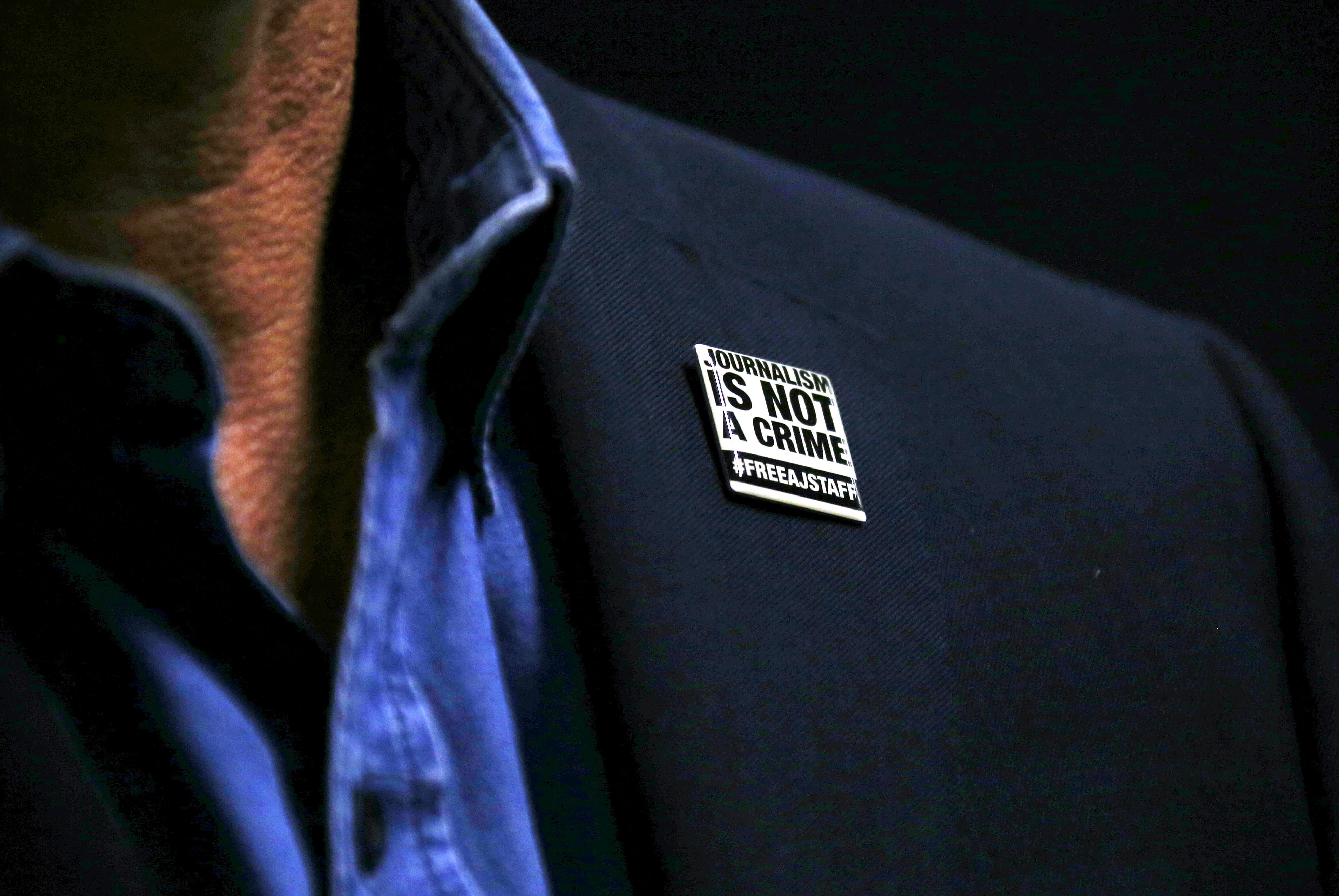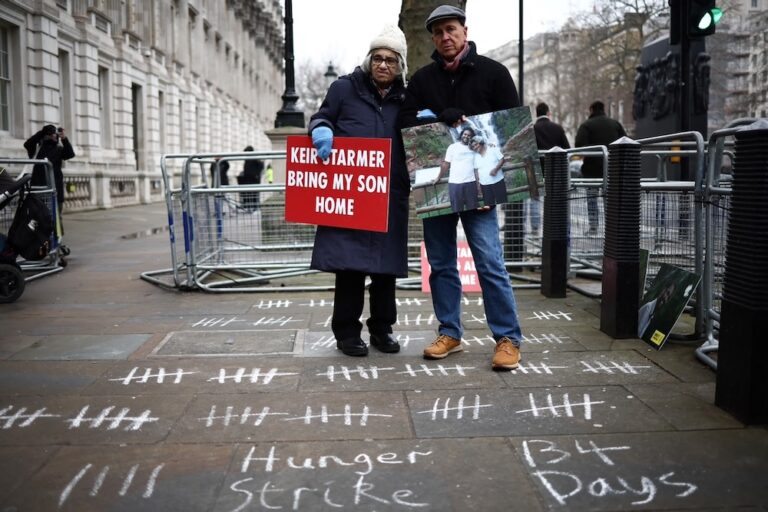Recent developments in Egypt, including the sentencing of two well-known journalists to prison and claims by supporters that a group of journalists condemned to life imprisonment were being held in inhumane conditions pending appeal, mark a further deterioration in media freedom.
This statement was originally published on freemedia.at on 9 June 2015.
A badge hangs from the jacket of Al Jazeera reporter Peter Greste of Australia as he talks during an interview with Reuters in Sydney, Australia on May 29, 2015. REUTERS/David Gray
By: Natalie Rowthorn, IPI Contributor
Recent developments in Egypt, including the sentencing of two well-known journalists to prison and claims by supporters that a group of journalists condemned to life imprisonment were being held in inhumane conditions pending appeal, mark a further deterioration in media freedom, the International Press Institute (IPI) said today.
In a press release last Wednesday, the Qatar-based broadcaster Al Jazeera strongly defended Ayman Gaballah, managing director of Al Jazeera Mubasher, after Egyptian authorities reportedly accused of him of “targeting different Egyptian state institution [sic] and belonging to a terrorist organisation”.
The network characterised the accusations as a “continuation of Egypt’s targeting Al Jazeera and its journalists” and called on Egyptian authorities to “refrain from character assassination against journalists in their attempts to unfairly tarnish reputations, and to allow journalists to practice their profession freely without any intimidation or harassment”.
In a separate case also involving Al Jazeera, an Egyptian court last Thursday Opens external link in new windowheard closing arguments in the trial of three of the network’s journalists on charges of publishing “false news” and aiding the banned Islamist organisation Muslim Brotherhood. The court ordeal was extended further when Judge Hassan Farid adjourned the retrial until June 11 when other defence lawyers will present their closing arguments.
The three journalists, Peter Greste, Mohamed Fahmy and Baher Mohamed, were working for Al Jazeera English when they were arrested in December 2013. They spent more than 400 days in jail before being Opens external link in new windowreleased on Feb. 2015.
Greste was deported to Australia in February after an appeals court ordered a retrial while Fahmy and Baher remained in detention. After renouncing his Egyptian citizenship, Fahmy was released on bail together with Baher two weeks after Greste’s deportation.
While prosecutors alleged that the journalists altered footage of protests, a court-appointed expert committee was reported to have found no evidence of fabrication.
—
Separately, appeals for 14 journalists sentenced in the so-called “Rabaa Operation Room” case are expected to be submitted early this week, IPI has learned. As IPI reported last month, a court in April sentenced 13 of the journalists involved to life imprisonment and one to death.
Mona Hedaya, who has previously spoken to IPI on behalf of the journalists’ families and described herself as a friend of four of the sentenced journalists, told IPI on Friday that the conditions of the imprisoned journalists had worsened.
“The cell is made of concrete and it is underground with no air conditioners. They [the journalists] say it feels like an oven, and even the water is very hot – it is nearly boiling,” she wrote in an e-mail.
Hedaya also stated that the journalists are subjected to verbal attacks by prison guards, family visits are restricted and medical care is almost nonexistent.
According to Hedaya, greater attention from the press, as well as from human rights groups, will be needed to push the appeals process forward. “I think the trial is unlikely to be fair especially in the light of what the regime is doing with journalists and fabricating charges” she wrote. “But I think if there is enough support for the [them] in the case, human rights and press, it will be more likely to have a fair trial.”
—
In further developments, Egyptian journalists in two separate cases received prison sentences this month.
Youssef Shaaban, editor of Al-Bedaiah and a board member of the Egyptian Journalists Syndicate, was sentenced on May 31 by an appellate court to 15 months in prison for attempting to storm a police station on March 29, 2013, according to news reports. Shaaban had originally been sentenced to two years in prison in February.
In the other case, journalist Islam Behery was sentenced in absentia by a Cairo court on May 30 to five years in prison on charges of blasphemy in relation to his controversial daily show on religious issues. Behery was quoted in media reports as saying that he planned to appeal the verdict, adding: “What I say includes no contempt for religion. It is an attempt to expose persons, who have no sanctity.”
The “With Islam” host has frequently stirred controversy with his opinions and commentary on Islam. The show was suspended in April.
IPI Director of Press Freedom Programmes Scott Griffen characterised the recent developments as further evidence of a decline in press freedom in Egypt.
“We are deeply concerned by what appears to be a campaign of legal harassment and intimidation against journalists and others reporting or expressing unpopular views,” he said. “We call in particular on Egyptian authorities to ensure that international standards on due process and media freedom are respected in cases of journalists accused of criminal activity in relation to their work.”



